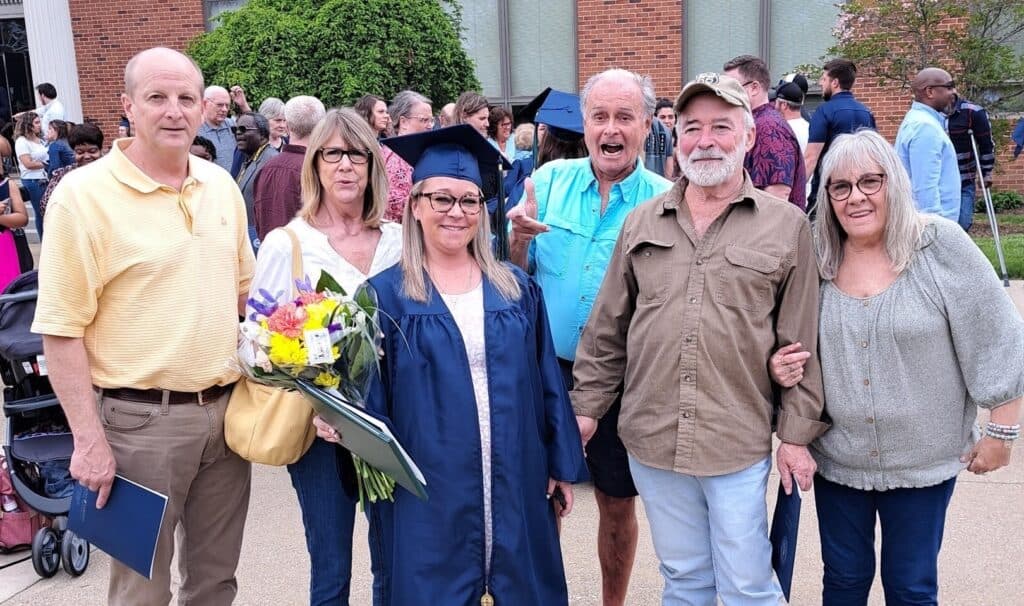
How Long Does It Take to Get a Master’s Degree in Teaching?
A master’s degree in education can be the perfect means to advance your skillset or enter the teaching profession for the first time. If you’re considering an advanced education degree, you’re probably wondering about the time commitment. How long does it take to complete a master's in education, and what factors can influence that timeline? Keep reading to learn the answers to these questions and plan for your future.
What Is a Master’s Degree in Education?
A master’s degree in education is a graduate-level degree (meaning one that comes after an undergraduate or bachelor’s degree program) designed to impart an in-depth understanding of educational principles and the practical skills needed to be a successful classroom teacher. Some master’s degree programs may also prepare you for other specialized roles in the field of education, such as an intervention specialist or school administrator.
Those drawn to the teaching profession tend to value lifelong learning, so it’s no wonder postgraduate programs are popular among current and aspiring teachers. In fact, just over half of public school teachers hold a master’s degree.
Education master’s degrees come in a variety of classifications, but one of the most common and well-respected is the Master of Arts in Education (M.A.Ed). MVNU Online offers three online M.A.Ed degrees to help you meet your career goals:
- Master of Arts in Education — Professional Educator's License
- Master of Arts in Education (Intervention Specialist — Initial License)
- Master of Arts in Education (Intervention Specialist — Advanced License)
If you’re new to teaching, you should explore the Professional Educator’s License (PEL) program. If you want to concentrate on serving students with special needs, look into the Intervention Specialist — Initial License program. Either of these degrees can help you get certified to become an Ohio teacher. If you’re already a teacher and looking to expand your capabilities with an Intervention Specialist license, then the Advanced License program is the way to go.
How Long Does It Take to Get a Master’s Degree in Education?
Generally, education master’s degree programs take 1-3 years to complete. This timeline includes the coursework and classroom experience needed to fulfill the degree program requirements. It also assumes you have a bachelor’s degree, as this is a prerequisite for getting your master’s degree.
MVNU Online students can complete the online M.A.Ed PEL program in approximately 22 months. That means, even without a background in teaching, you could be ready to apply for licensure and begin an exciting new career in just two years!
Factors Influencing the Length of an Education Master's Degree
There are great reasons to pursue a master’s degree in education, no matter how long it takes. That said, it’s smart to plan ahead and consider what sort of time commitment you’re looking at to earn your M.A.Ed. The time it takes to earn your degree can vary depending on several factors. Here are some key considerations that can influence the duration of your graduate education in this field.
Program Requirements
The master's program you choose can significantly impact the time to completion because program requirements vary across institutions and between specific programs.
The typical number of credits needed for an education master’s degree is around 36 credit hours, but many programs will not fit that mold. For example, M.A.Ed programs at MVNU Online range from 30-43 credit hours. Keep in mind that if you have previously completed graduate-level coursework or have transferable credits, you may be able to apply these toward your master's degree, potentially reducing the time required for completion.
In addition to coursework, education programs may come with additional components such as a capstone project, student teaching, or an internship. These requirements can add to the duration of your degree program. As you compare programs, ensure you understand whether the time estimate given to complete the program includes these experiential components.
Course Load
The number of credit hours in a program isn’t enough to tell you how long the program will take to complete because that depends on the course load. Full-time students can complete their master's programs more quickly (typically in about 1-2 years), whereas a part-time master’s degree in education timeline is more like 2-3 years.
A part-time course load may be a smart choice for those who are planning a career move a few years down the road and looking to take baby steps toward achieving that goal. Earning a master’s degree in education little by little can also help working teachers meet continuing education requirements dictated by their school or state board of education.
A full-time course load is the best option if you’re looking to earn your degree quickly so you can enter the teaching profession or qualify for new positions in the field. You don’t need to dedicate the entirety of your focus to school to go full-time. With flexible online programs or night classes, many students continue to work and balance family obligations while taking a full course load.
In-Person vs. Online
Some in-person and online programs may take the same time to complete. However, in many cases, you’ll find more flexibility and tailored options with an online degree program compared to an in-person one.
Master’s degree programs with classes you attend on campus are a bit more standardized in most cases. Online programs, on the other hand—especially asynchronous ones—allow you to complete coursework when it works best for you, maximizing the amount of schooling you can fit into your schedule and accelerating your path to graduation.
Online programs may also have more frequent start dates, allowing you to jump in as soon as you’re ready rather than waiting on the traditional semester schedule.
Prior Education
Your previous educational background can also affect the time required to finish your master’s degree in education. If you have a bachelor's degree in education or a related field, you may be eligible for more streamlined programs or advanced standing, which can shorten your master's degree timeline.
However, if your undergraduate degree is in an unrelated field, you may need to complete additional prerequisite coursework, extending the time to earn your degree. For example, if you choose to concentrate on teaching a specific subject and don’t have a background in that subject, then you may need to complete additional coursework to prepare to get your license in this area.
Accelerated Options
Some universities offer accelerated programs, including summer or intensive sessions, which can help you complete your degree more quickly—sometimes in as little as 12-18 months. These options can be especially beneficial for those looking to expedite their degree to start the next chapter of their career.
Ready to Get Started? Learn More About Program Options to Find Your Fit!
How long does it take to earn a master’s degree in education? The time it takes can vary based on the program’s structure and your educational background. It's essential to research and choose a program that aligns with your goals and timeline and consider the various factors that can affect your progress toward earning your degree.
If you’re interested in getting your master’s in education but aren’t sure where to start, check out our e-book, Which Education Program Is Right for Me?



